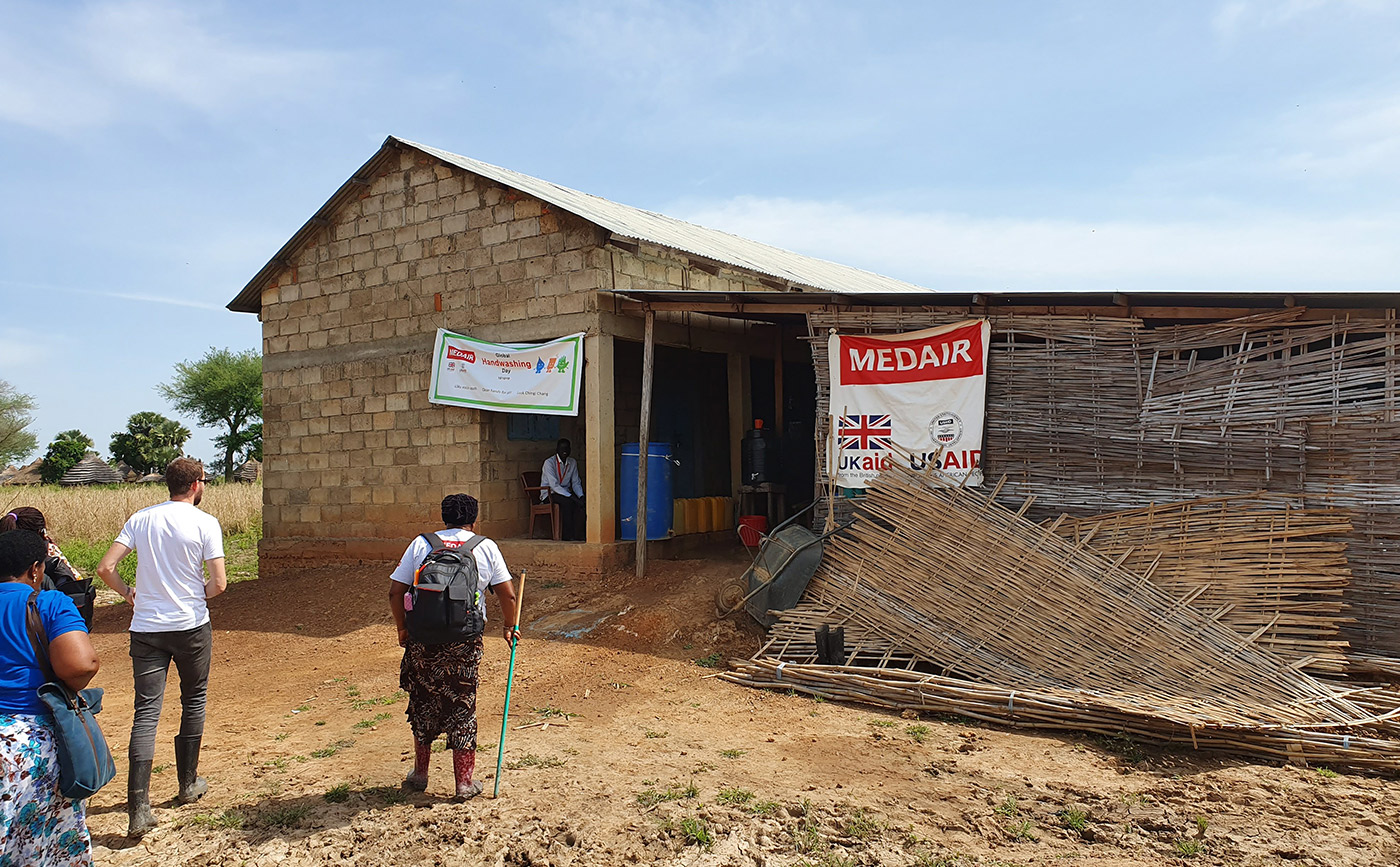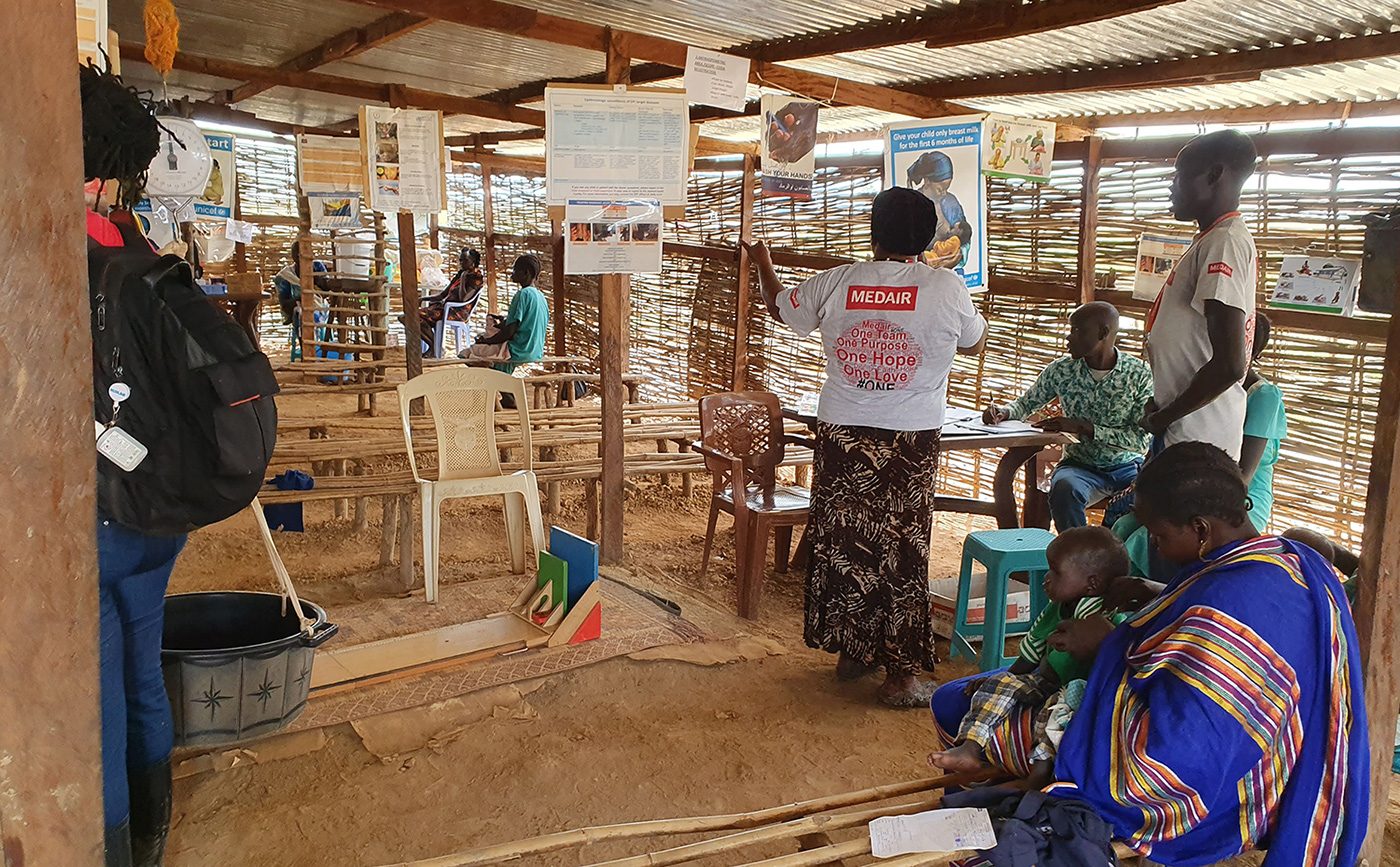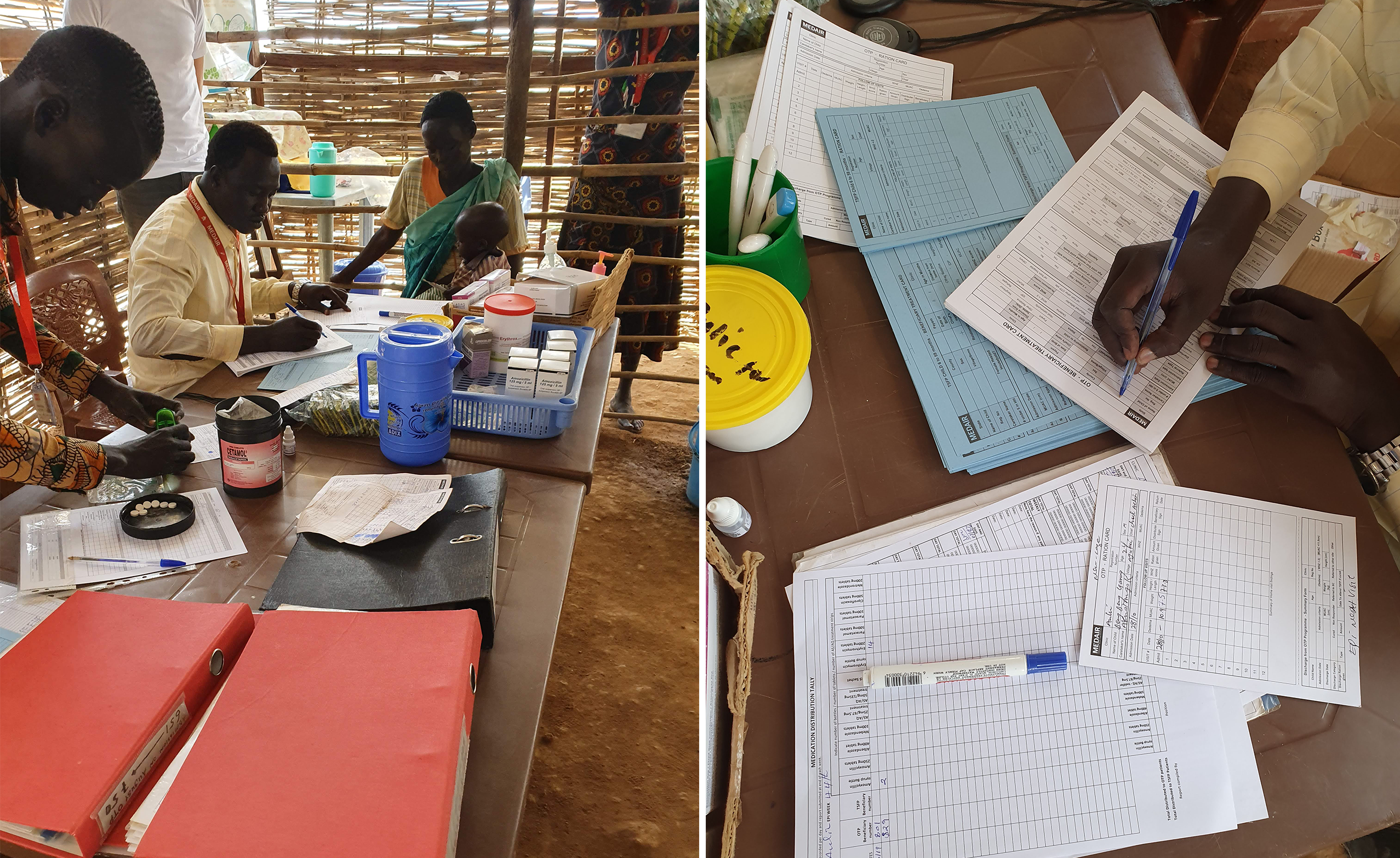The IMpact Program
Social Impact, Digital Transformation, Product Development
2020-2022
____
Medair is an international humanitarian organization with a mission to help those suffering from the effects of conflict, displacement, and natural disasters. As a senior business analyst with Medair Global Information Technology and Services team, I’ve helped shape and implement digital transformation projects.
THE CHALLENGE
Imagine that you lead a nutrition project in remote clinics in South Sudan with little to no connectivity. To report on your project progress, you collect hand-written information from different locations, recorded on multiple pieces of paper. You spend hours every day trying to understand the numbers, assessing their validity, entering them into complicated databases, and then running multiple calculations to analyze whether malnourished people are being served.
Sound like a lot? Well, this is the journey of Medair’s health and nutrition teams, who, in 2021 alone, provided essential health and nutrition support to more than 2.1 million people in 10 different countries.
“With the Heath & Nutrition IMpact solution we are literally saving hours of our lives and the lives of people we serve. No more struggling with complex excel sheets at our desks all day long!” – User feedback
THE OUTCOME
The IMpact program (IM stands for Information Management) is a collaboration between Medair’s international field programs and technologists on a mission to transform the unstructured labor-intensive information management processes into simple applications available for use offline and on smartphones and tablets.
IMPACT
The IMpact information management solution for the health and nutrition sector has
- Enhanced the programming design by aligning data collection with global standards and requirements
- Decreased reporting time by over 90%
- Improved the data collection and entry experience of field staff, especially those who work in remote areas with low connectivity
- Decreased human error during data entry by over 70%
- Improved data protection
- Ensured sustainable solutions by using open source tools that communities could continue to use when Medair leaves
- Improved data and digital literacy of Medair’s teams, from field volunteers to global advisors.
Remote nutrition facility in South Sudan
THE PROCESS
Discovery
The first step was breaking the silos within the organization and inviting people from different sectors, country programs, and specialties to sit and talk about the information management challenges and priorities. Once high-level stakeholders had a clear idea of the challenges the teams were facing, we started designing IM solutions for Health and Nutrition programming.
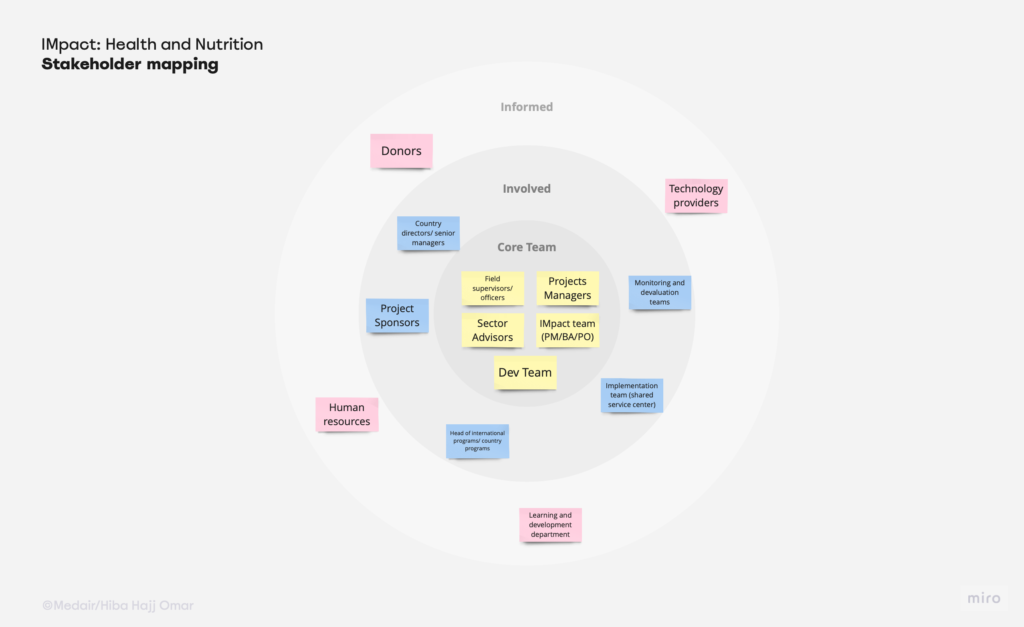
I started interviewing colleagues from the field with different project roles in different locations. Wearing many hats, I had to understand:
-
- what was going on?
- who was doing what?
- how, and for how long?
- and most importantly, why they were doing it?
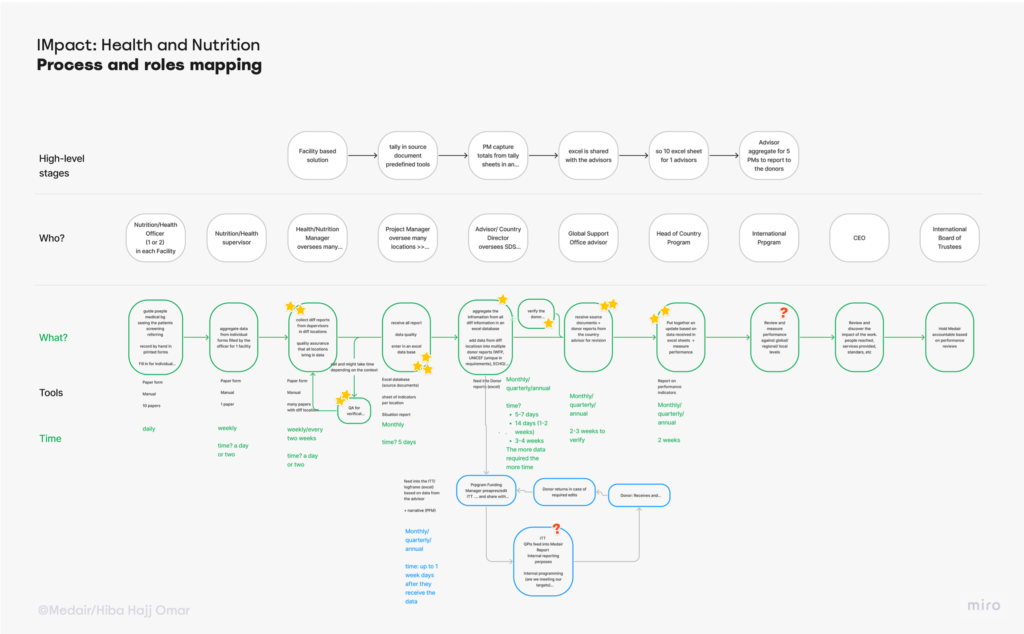
Throughout the journey, I mapped all roles and tools at each stage. I also identified critical challenges like time, data quality and security, human error, the user experience and satisfaction, and the overall program performance. Then together with the IMpact team, we created personas and empathy maps.
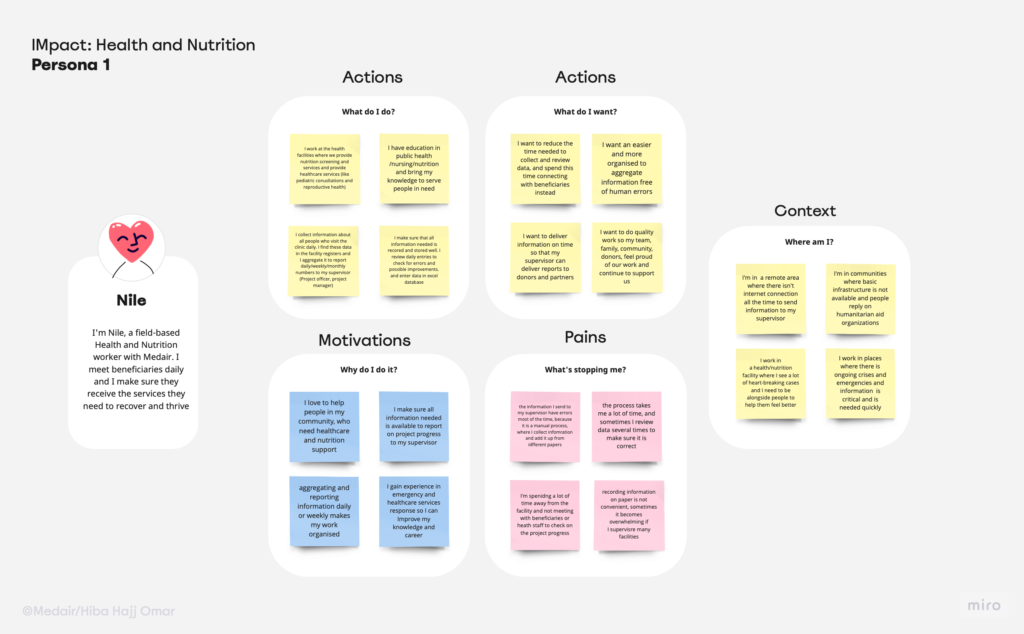
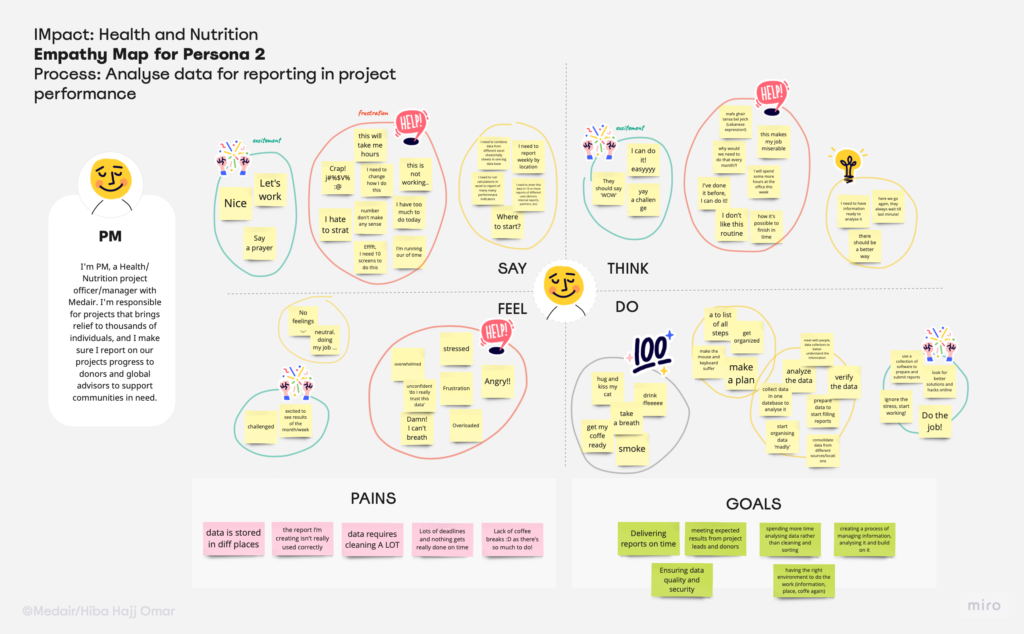
Experimentation
Together with the IMpact project manager and technology lead, I facilitated ideation and prototyping workshops to create potential tools. I introduced ideation techniques like brainwriting to accommodate the thinking styles of different personalities in the team.
We developed data collection mechanisms using open-source tools with an agile and lean approach and used Qlik, a strategic tech partner, to create data visualization and reporting dashboards. I led the pilot of testing these tools with the Medair Nutrition team in Bangladesh.
(1) Medair nutrition colleagues tallying information in remote health facilities (2) Empathy mapping (3) Team <3!
Implementation and Continuous Improvement
As we developed, tested, and learned, our pilot turned out to change a lot in the lives of our field teams.
“The digital tools reduce paperwork and hours of complicated data entry. In addition, looking at the information on the dashboard vs. using multiple excel databases has made checking and reporting data much easier,” shares Medair’s Bangladesh Nutrition Project Manager.
As of writing this, the solution is being rolled out in South Sudan, Madagascar, and DR Congo, touching the lives of over 50 nutrition workers and over 1.5 million individuals receiving nutrition services.


